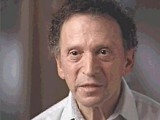You searched for: 大发快三输了5万怎么办【TG飞机:@bapingseo】吉布提谷歌霸屏推广【TG电报:@bapingseo】微信投放朋友圈廣告【Telegram:@bapingseo】ag论坛口袋妖怪pg游戏官方网站?e3Tt97/C5pknd.html
<< Previous | Displaying results 91-100 of 556 for "大发快三输了5万怎么办【TG飞机:@bapingseo】吉布提谷歌霸屏推广【TG电报:@bapingseo】微信投放朋友圈廣告【Telegram:@bapingseo】ag论坛口袋妖怪pg游戏官方网站?e3Tt97/C5pknd.html" | Next >>
-
Chaim Kozienicki
ArticleChildren's diaries bear witness to some of the most heartbreaking experiences of the Holocaust. Learn about the diary and experiences of Chaim Kozienicki.
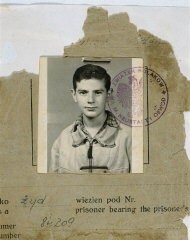
-
1939: Key Dates
ArticleExplore a timeline of key events during 1939 in the history of Nazi Germany, World War II, and the Holocaust.
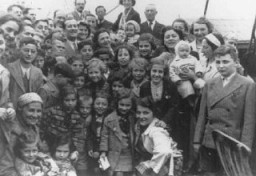
-
Gino Bartali
ArticleIn 2013, Yad Vashem recognized Italian cyclist Gino Bartali as Righteous Among the Nations for his rescue activities. Learn more
-
World War I and its Aftermath: Key Dates
ArticleExplore a timeline of key events in the history of World War I and its aftermath. Learn about the conflict and its divisive peace.

-
Wolfgang Lachman
ID CardWolfgang was the only son of observant Jewish parents living in Berlin. Though trained as a mechanical engineer, Wolfgang's father ran a wholesale kerchief and handkerchief business that he had taken over from his father-in-law. Wolfgang's family lived in an apartment above the business. They enjoyed vacationing at their country home in Neuenhagen, a suburb of Berlin. 1933-39: Wolfgang began school when he was 5; that year Hitler was named leader of Germany. Every morning they had to sing three songs: the…
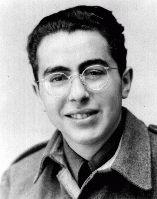
-
Hanandel Drobiarz
ID CardHanandel was raised with his three brothers and sisters in the town of Kozlow, where his family sold grain and livestock. The family was religious, and they observed the Sabbath and all Jewish holidays and dietary laws. When Hanandel was 5, he began studying Hebrew, the Bible, prayers, and Jewish history. 1933-39: At age 14 Hanandel was apprenticed to his uncle in Sosnowiec as a tinsmith. He worked for his uncle during the day and attended trade school at night. When he graduated from trade school he…
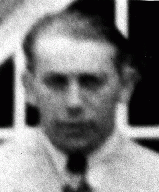
-
Yosel Coller
ID CardOne of six children, Yosel was raised in a religious Jewish family in Lodz, an industrial city in western Poland. His father was a businessman. At the age of 6, Yosel began attending a Jewish day school. His two older sisters attended public school in the morning and religious school in the afternoon. Yosel spent much of his free time playing soccer with his brothers. 1933-39: Yosel's family lived in a modest house in the northern section of Lodz. He went to a Jewish day school and had many friends there.…
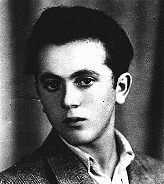
-
Lucien-Louis Bunel
ID CardLucien was the fourth of eight children born to poor Catholic parents in a small town in northwestern France. Lucien began his seminary studies in nearby Rouen at the age of 12. Following two years of military service, he resumed his religious studies in 1922 and was ordained as a priest three years later. He joined the Carmelite religious order in 1931, and became Father Jacques. 1933-39: In 1934 Father Jacques moved to the town of Avon, where he established a boys' school,…
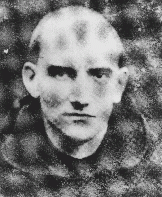
-
Bela Blau
ID CardBela's city of Bratislava, located on the banks of the Danube river, had an old and important Jewish community. Bela was the eighth child in his large Jewish family. His father was a furrier. At age 16 Bela began working as a salesman for a textile business. In 1930 he was called up for 18 months of army service. 1933-39: Bela and his wife moved to the Slovakian city of Zilina. Their son was born in November 1937. Bela worked for a German photographic company until 1938, when he lost his job because he…
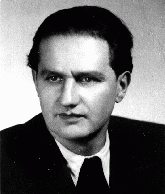
-
Sandor (Shony) Alex Braun describes how music gave him the strength to survive while imprisoned in concentration camps
Oral HistoryShony was born to religious Jewish parents in a small Transylvanian city. He began to learn the violin at age 5. His town was occupied by Hungary in 1940 and by Germany in 1944. In May 1944, he was deported to the Auschwitz camp in Poland. He was transferred to the Natzweiler camp system in France and then to Dachau, where he was liberated by US troops in April 1945. In 1950, he immigrated to the United States, and became a composer and a professional violinist.
